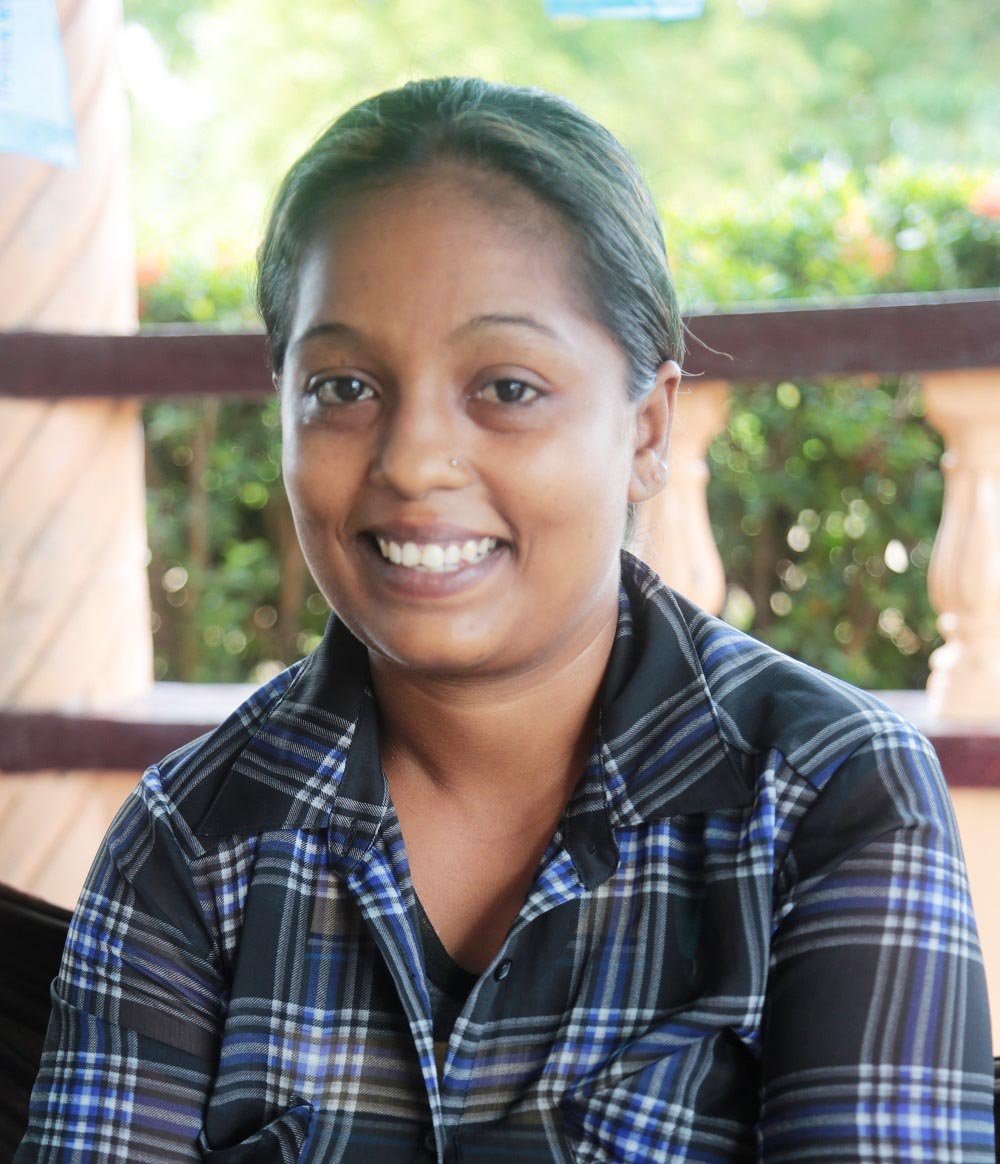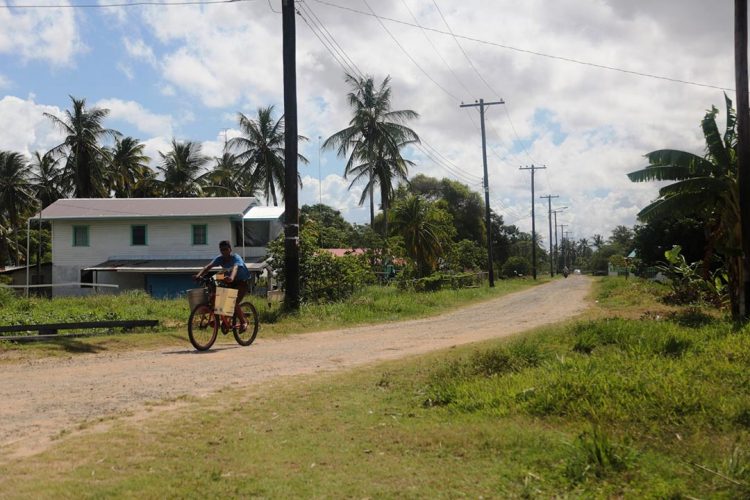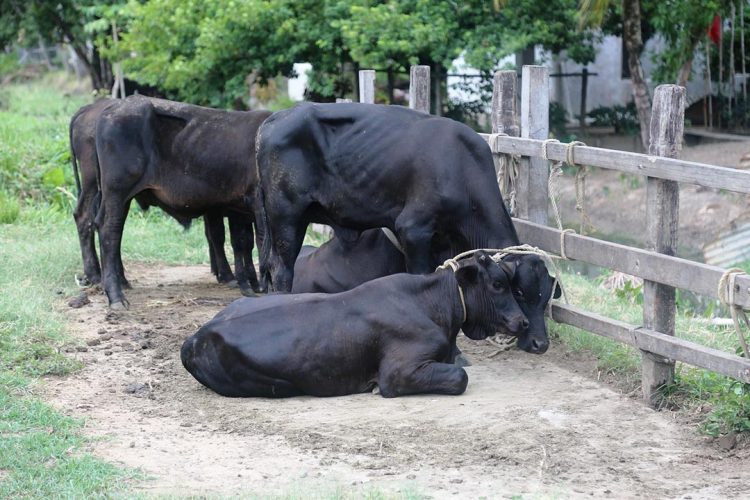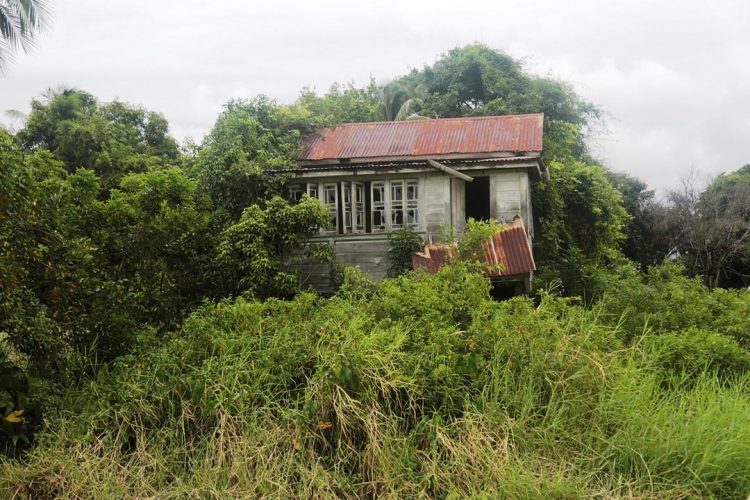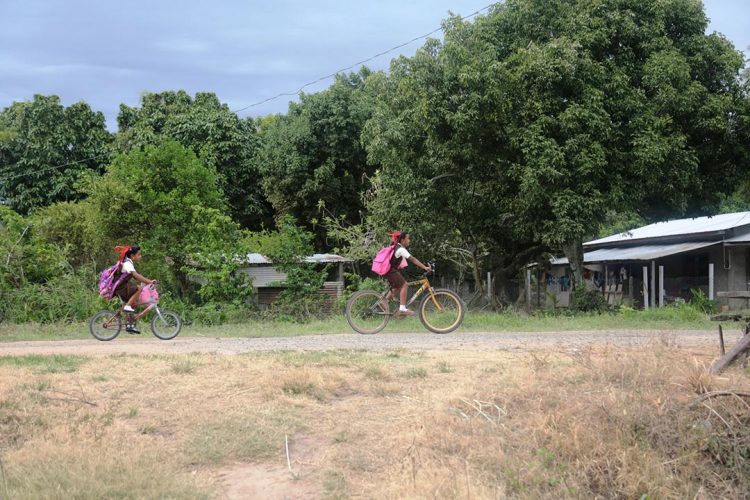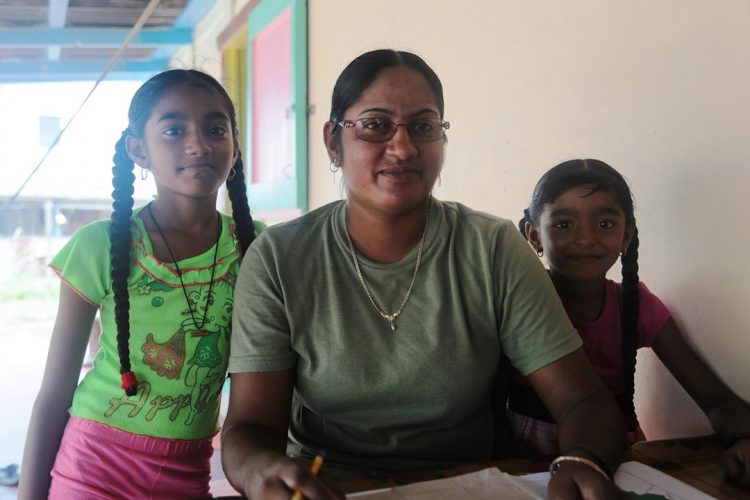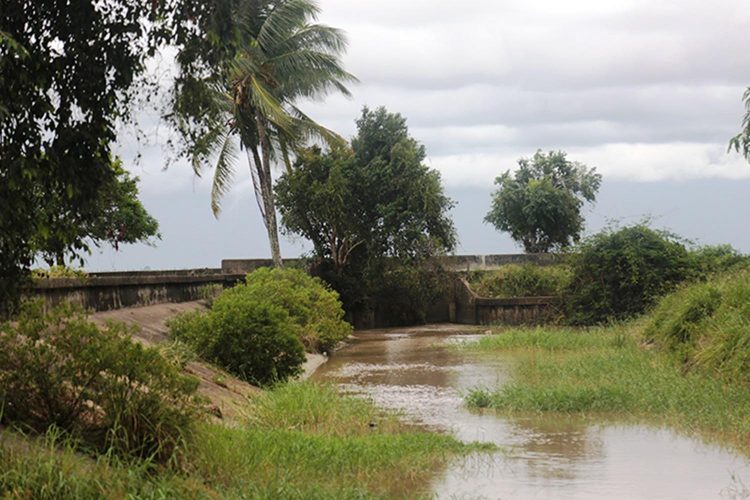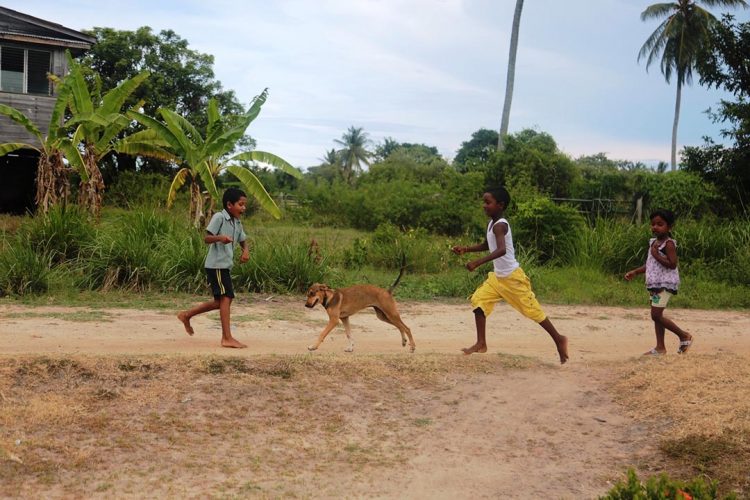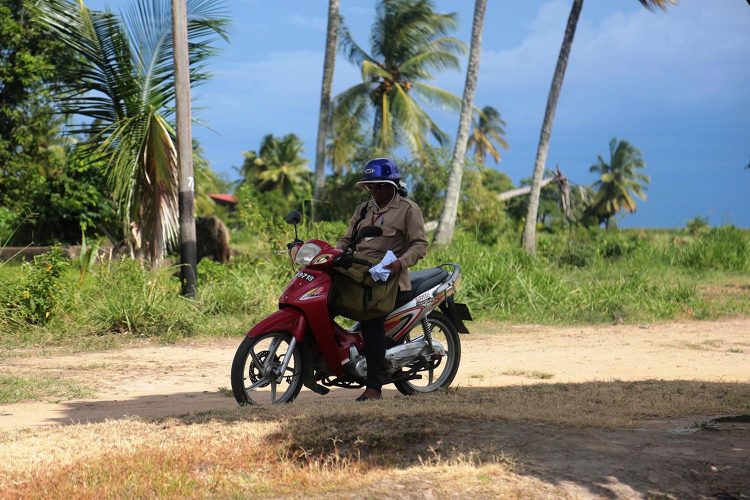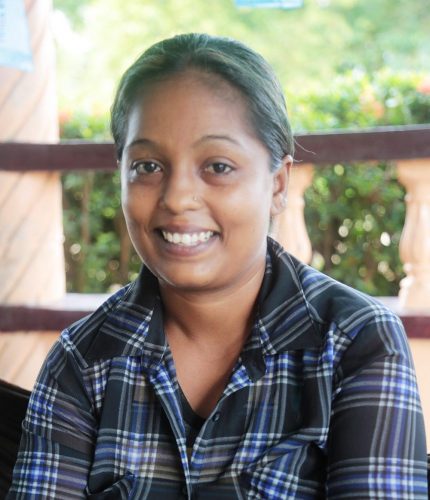Amsterdam is a community situated on the eastern side of Leguan enclosed by villages Canefield and Endeavour, rice fields and the seawall that keeps the Essequibo at bay. Its name is Dutch in origin and this sleepy little village is a haven for its almost 160 residents.
Most of the people belong to the Islamic faith; just a handful of families are Hindus and only one person practices the Christian faith. The village has only one place of worship, a mosque as well as a small shop; there are no schools.
Amsterdam’s two main economic activities are cattle rearing and rice farming, but the goats, creole fowls, ducks and even a donkey along the road and in vacant lots proved just how much the people of Amsterdam are invested into the rearing of poultry and other animals. What the number of animals along the road could not outdo, however, were the numerous fruit trees growing along the parapet; from bananas to mangoes to cashews and much more.
Not much stirred in the village, except for the animals foraging and munching on surrounding grass. In fact, the only vehicle that came through was the taxi that dropped me off.
Under a house at the far end of the village two sisters-in-law and their mother-in-law sat across from each other chatting.
Rishamattie Yamona sat in a hammock, she was nursing a sprained ankle from a bicycle accident that caused a stove she was transporting to fall on her foot earlier that day. She had only just returned from the hospital in Blenheim where she had been treated and had her foot bandaged.
Yamona is not a native of Amsterdam but has settled in nicely with her family and in-laws. She hails from Ruby on the East Bank Essequibo and moved to Amsterdam ten years ago after getting married.
According to the woman, arriving and settling there was not difficult for her but one she welcomed coming from the noisy Ruby where vehicles sped by day and night. She belongs to one of the six Hindu families in the village and visits the Hindu Temple in Endeavour where she is a part of the Kirtan Group which sings Bhajans at services held at the Temple and at Hindu functions. Whenever they are singing, they take along with them the Dholak instrumental players.
The woman noted that neighbours are closely knit and always look out for each other. What she most admires about them is their cooperativeness and friendliness when it comes to assisting each other during funerals. When asked if the same happens at wedding also, she said those were rare as most of the children have married already or migrated and those that remain are only a few.
Yamona’s husband works as a labourer on a farm.
Almost every home keeps a kitchen garden and so the family is usually only tasked with getting groceries. A grocery van comes along Amsterdam every Saturday. Otherwise Yamona said she rides to a shop situated two minutes away in Endeavour. Sometimes she purchases from the shop in the village as well but because it’s small, not everything is available.
As there are no schools in the village, her sons ride to school. They attend Endea-vour Primary. Bicycles and motorcycles are the main modes of transportation in the area.
She doesn’t get flooding at her
residence but said some parts of the village flood, though only seldom. Two of those times for this year alone were because of the sluice being broken but she added that within a couple of days it was fixed.
Yamona’s mother-in-law, who was cutting up karila had only one thing to speak about and that was the electricity bill the postwoman had minutes before delivered. She pointed out that at one time she paid $15 per kilowatt but is now paying $59. She wishes that the cost per kilowatt could be dropped.
Back out on the road, Yamona’s sons and niece played with a village dog.
Further up the village, close to the mosque, Indian music belted out from speaker boxes sitting on Faranaz Khan’s verandah.
She was born and raised in the village and lives with her husband and two sons. Her younger son attends Endeavour Primary while the older, a former student of Leguan Secondary is currently at home having written the Caribbean Secondary Education Certificate School Examina-tion.
Faranaz is waiting for him to attain the age of 18 next April so she can send him off to the technical institute on the West Coast Demerara. She added, “If we had more [academic] programmes here it would have been easier for us.” The move she said will be hard on the family as her son prefers to stay with his family and she wishes the same. However, it is still being decided if the family will move for the period he’ll be studying for or whether she’ll travel back and forth as her husband isn’t so enthusiastic about moving.
Her husband at the time of my visit was away in the farm picking fruits. This he does throughout the year and sells off to the hucksters. The man, who is also a cattle farmer, would annually during the time of Eid sell off 30 or more cows. He is the only Christian in the village and attends the Anglican church in Enterprise at the Leguan Boat Stelling.
An advantage of living in Amsterdam, the woman said is being surrounded by Muslims who consider each other family in their faith. Holidays would find them in celebration at the mosque, a time, which she noted is always anticipated. Khan also shared that living there, one can be at peace adding that the quiet atmosphere is always refreshing. There are days, she admitted, that she has left the house open and gone about her business and has always returned to find it the same way with everything intact.
The village has one street light that is in working condition. Some time ago, she said, the villagers had approached government officials with the plan of adding a few streetlights they had planned to purchase after pooling their monies but the officials were unwilling to foot the bill so they dropped the idea.
